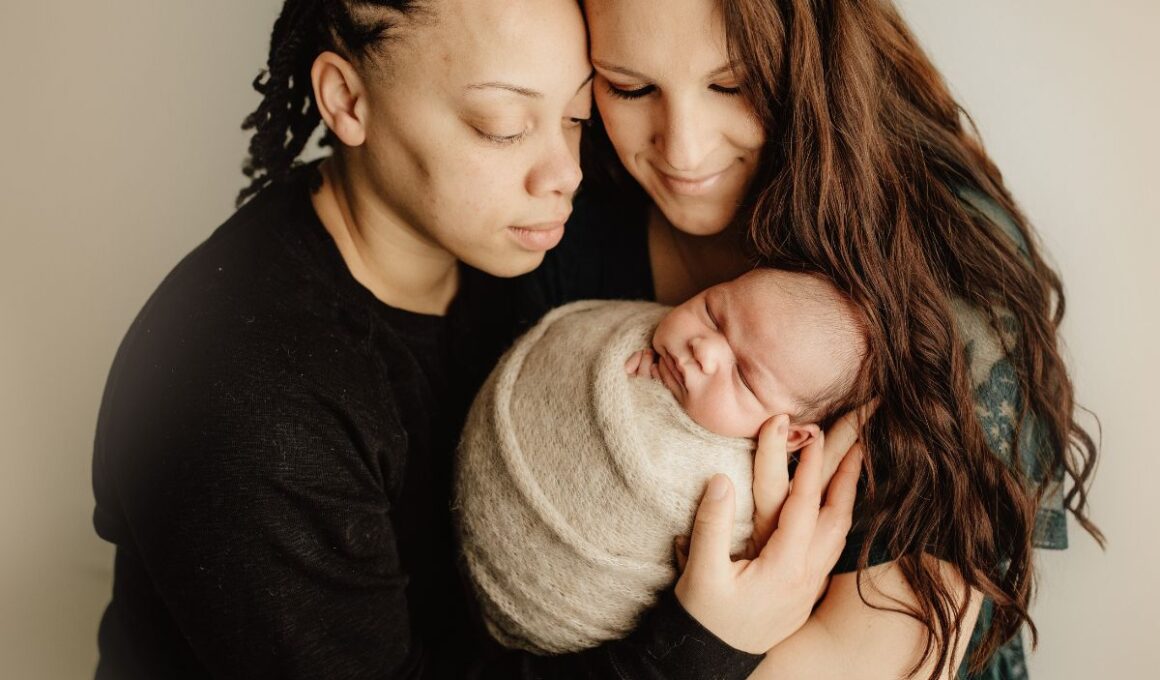Parenthood is a beautiful and fulfilling journey that many couples embark on, including lesbian couples. However, the path to parenthood for same-sex female couples may involve additional considerations and choices. In this article, we will explore five possible ways that lesbian couples can get pregnant, discussing the methods, their pros and cons, legal and emotional aspects, and available support resources. By understanding these options, lesbian couples can make informed decisions and embrace the joy of becoming parents.
How Do Lesbian Couples Get Pregnant( 5 Possible Ways Explained)
1. Donor Insemination
Donor insemination, also known as artificial insemination, is a commonly chosen method for lesbian couples to conceive. In this process, a sperm donor’s sperm is introduced into the reproductive system of one partner through various techniques such as intrauterine insemination (IUI) or intracervical insemination (ICI). This method allows for fertilization to occur within the body, increasing the chances of conception.
Pros of Donor Insemination
- Relatively simple and non-invasive procedure
- Can be done at home or with medical assistance
- Offers the opportunity for both partners to be involved in the conception process
Cons of Donor Insemination
- Lower success rates compared to other methods
- Limited control over genetic factors
- The need to select a suitable sperm donor
2. In Vitro Fertilization (IVF)
In vitro fertilization (IVF) is another viable option for lesbian couples seeking pregnancy. IVF involves the retrieval of eggs from one partner’s ovaries, which are then fertilized with donor sperm in a laboratory setting. The resulting embryos are carefully monitored and transferred into the uterus of the partner who will carry the pregnancy.
Pros of In Vitro Fertilization (IVF)
- Higher success rates compared to donor insemination
- Allows for genetic connection with one partner
- Potential for embryo screening to reduce the risk of genetic disorders
Cons of In Vitro Fertilization (IVF)
- More complex and invasive procedure
- Requires hormonal stimulation and egg retrieval
- Possibility of multiple embryo transfers and associated risks
3. Reciprocal IVF
Reciprocal IVF, also known as partner-assisted reproduction or shared motherhood, is a unique method that allows both partners in a lesbian couple to actively participate in the conception and pregnancy process. In this approach, one partner undergoes ovarian stimulation, egg retrieval, and fertilization with donor sperm. The resulting embryos are then transferred to the other partner’s uterus for implantation and pregnancy.
Pros of Reciprocal IVF
- Offers a shared biological connection between both partners and the child
- Allows both partners to experience the physical aspects of pregnancy
- Emotional bonding opportunities for both partners throughout the process
Cons of Reciprocal IVF
- Higher cost compared to other methods
- Requires careful coordination and synchronization of reproductive cycles
- Psychological and emotional challenges may arise due to role delineation
4. Surrogacy
Surrogacy provides an alternative pathway to parenthood for lesbian couples when one or both partners are unable to carry a pregnancy. In surrogacy, a gestational carrier, often referred to as a surrogate, carries the pregnancy on behalf of the intended parents. This method involves a legal agreement between the surrogate and the intended parents, and in some cases, the use of donor eggs or sperm.
Pros of Surrogacy
- Possibility for biological connection with one or both partners
- Option for couples who are unable to carry a pregnancy due to medical reasons
- Ability to have a more active role during the pregnancy journey
Cons of Surrogacy
- Legally complex process with varying regulations in different jurisdictions
- Higher financial costs associated with surrogacy arrangements
- Emotional and ethical considerations for all parties involved
5. Adoption
Adoption provides lesbian couples with an opportunity to build their family through legal means. Adoption involves the process of legally and permanently welcoming a child into the family who may be in need of a loving home. Adoption agencies and organizations facilitate the matching of prospective parents with children who are available for adoption.
Pros of Adoption
- Offers the chance to provide a loving home to a child in need
- Provides an opportunity to make a positive impact on a child’s life
- Allows for a broader age range when considering parenthood
Cons of Adoption
- Adoption processes can be lengthy and bureaucratic
- Adoption criteria and requirements may vary across jurisdictions
- Emotional complexities and potential challenges associated with the adoption journey
Comparison of the Different Methods
Each of the methods discussed above has its own advantages and considerations. The choice of the method depends on various factors, such as personal preferences, medical conditions, legal regulations, and financial resources. It is essential for lesbian couples to thoroughly research and understand the available options, seeking professional guidance when necessary, to make an informed decision that aligns with their desires and circumstances.
Legal Considerations and Challenges
While many countries have made significant progress in recognizing and supporting same-sex parenting rights, legal considerations and challenges may still arise for lesbian couples seeking parenthood. It is crucial to understand the legal landscape of the specific jurisdiction, including laws related to assisted reproductive technologies, surrogacy, and adoption, to ensure compliance and protection of parental rights.
Emotional and Psychological Aspects
Embarking on the journey to parenthood can bring a mix of emotions for lesbian couples. It is important to acknowledge and address the emotional and psychological aspects throughout the process. Seeking support from healthcare professionals, counselors, or support groups specifically designed for same-sex couples can provide valuable guidance, reassurance, and a sense of community.
Support and Resources for Lesbian Couples
Numerous organizations, support groups, and online communities are dedicated to assisting lesbian couples on their path to parenthood. These resources offer guidance, education, emotional support, and connections with others who have shared similar experiences. It is beneficial for lesbian couples to explore these support networks and access the wealth of information and resources they provide.
Myths and Misconceptions
Lesbian couples facing the prospect of parenthood often encounter myths and misconceptions that can create unnecessary doubts or confusion. Addressing these misconceptions is vital to promote understanding and acceptance. Some common myths include the assumption that lesbian couples cannot provide a nurturing environment or that children raised in same-sex households will experience adverse outcomes. Research consistently refutes these stereotypes, emphasizing that love, care, and a supportive environment are the essential factors for healthy child development.
Conclusion
Becoming a parent is a deeply personal and meaningful journey, regardless of sexual orientation. Lesbian couples have multiple avenues available to them when it comes to getting pregnant and starting a family. By exploring methods such as donor insemination, IVF, reciprocal IVF, surrogacy, and adoption, lesbian couples can find the path that best suits their aspirations, preferences, and circumstances.
It is crucial for each couple to evaluate their options, seek appropriate support, and make decisions that align with their values, leading them to the joyous experience of parenthood.
FAQS
FAQ 1: Can lesbian couples conceive naturally?
No, lesbian couples cannot conceive naturally in the traditional sense. Since both partners are female, they require assistance through medical interventions or alternative methods, such as donor insemination, IVF, reciprocal IVF, surrogacy, or adoption.
FAQ 2: Is it necessary for both partners to undergo medical procedures?
The necessity for medical procedures depends on the chosen method of conception. In methods like donor insemination or reciprocal IVF, only one partner may require medical procedures. However, in other methods like IVF or surrogacy, both partners may need to undergo medical procedures.
FAQ 3: What are the success rates of these methods?
Success rates vary depending on the method chosen and individual circumstances. Factors such as age, overall health, and underlying fertility issues can influence success rates. Consulting with a fertility specialist or reproductive endocrinologist can provide more specific information tailored to each couple’s situation.
FAQ 4: Are there any legal restrictions for lesbian couples seeking parenthood?
Legal restrictions related to lesbian couples seeking parenthood vary across jurisdictions. It is essential to research and understand the specific laws and regulations within the relevant jurisdiction to ensure compliance and protection of parental rights.
FAQ 5: How can lesbian couples find support during their journey to parenthood?
Lesbian couples can find support through various channels. Online communities, support groups, LGBTQ+ organizations, and fertility clinics often provide resources, guidance, and emotional support for lesbian couples on their path to parenthood. Connecting with other couples who have gone through similar experiences can offer valuable insights and a sense of community.







